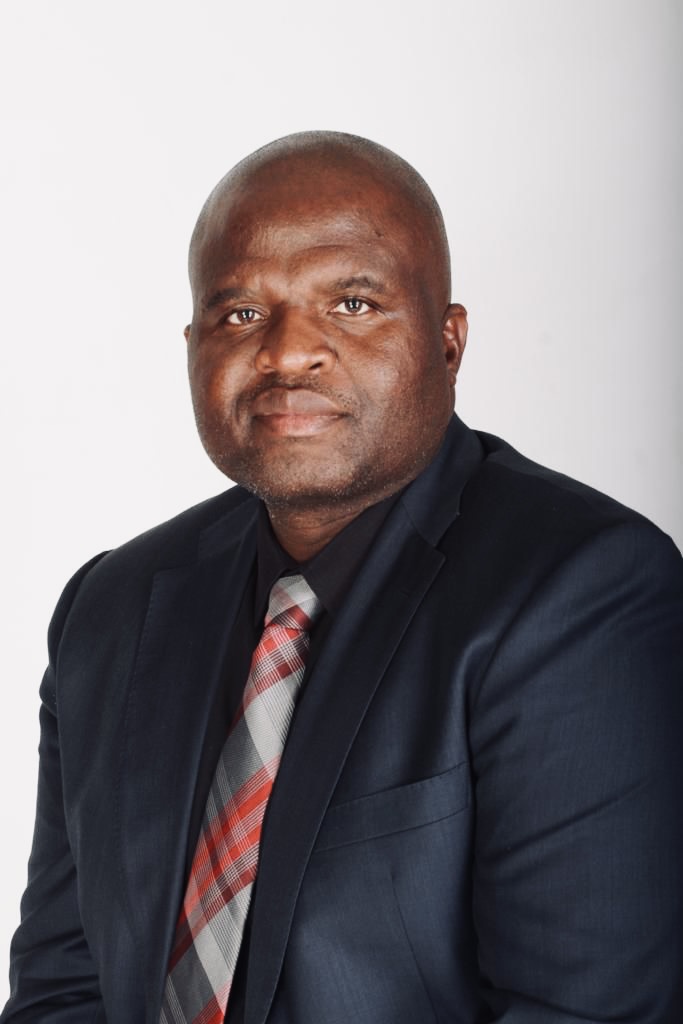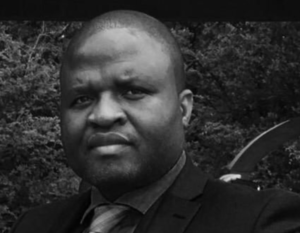My late sister (RIP) and I used to fight, like many siblings do. Mostly the verbal sort: the physical bit happened only once, then the entire family held me down and gave me a good hiding because (lesson learnt, even though she was wrong and she started it), we do not hit women.
After that, it was all verbal. Still, my sister would end up crying, because I could throw some nasty words, while she was not good at it. Or so she thought. Truth is, her words stung, still sting decades later, but I was just good at hiding the effect of their venom.
By a large margin, one of the most painful things she used to say to me was “uri chinyi iwe pachidzva chehuku.”
When you have not lived in the rural areas, when you do not know the rarity of chicken as a sadza accompaniment, and when you do not realise the reverence with which chidzva/drumstick is held in the “dishing” process, you cannot get how painful that simple statement can be. Who are you in the grand scheme of things, with an implied answer that you really are nothing. At all.
I found myself thinking about this because of three events. The first was the not too surprising news that the United States had confirmed that it voted against any form of debt relief for Zimbabwe from our international creditors because of ZIDERA, the sanctions statute from the US Congress that the Zimbabwe opposition claims does not exist.
The second was a statement on Twitter by Hopewell Chin’ono, the journalist, about this vote, in which he stated, in part, the following:
“US declines to support funding Zimbabwe arrears clearance, debt restructuring,” reports the regime’s Business Weekly quoting the US Assistant Secretary of Treasury, Eric Meyer.
I have said this many times before, and I will say it again.
President Mnangagwa’s Government thinks that by offering to pay white farmers, they will suddenly get their international political groove on without addressing the issue of human rights and the Rule of Law.
That is not it, and it won’t happen like that if you have been listening to the Americans.
They care more about the human rights issues of jailing opponents like Job Sikhala and Jacob Ngarivhume on baseless charges than the white farmer payment issue.
President Mnangagwa can pay all the white farmers today, and his problems will still remain, as an international pariah, until he addresses the issue of human rights and Rule of Law.
ZANUPF created its own propaganda narrative that it is under sanctions because of the land issue, it then believed its propaganda hook liner and sinker, and now thinks that if it pays white farmers, all is forgiven by America.
The Americans have said on many occasions that for them, it is human rights and the Rule of Law that will fix their bilateral problem with Zimbabwe.
Mnangagwa’s advisors are misleading him and telling him to go for the land issue first by paying over US$3 billion to the white farmers hoping that America will shift its positions.”
We will get to the third event later.
While I do not always agree with Mr Chin’ono, there is some wistful truth in what he says: even if not for there same reasons. Paying farmers will not lead to the end of sanctions. Freeing Job Sikhala and Jacob Ngarivhume (neither of whom ought to be in jail in the first place, I might add) would not lead to an end of sanctions, even coupled with paying farmers.
The truth is that no matter what we do, nothing short of the end of ZanuPF and the installation of a pliant government that cow-tows to the West and shuns China will ever be satisfactory enough to justify the lifting of sanctions. And the reason for this is simple, explainable by two truths.
One: Zimbabwe is useful as an example, no more. When the West needs an example of a case where they have held the line and refused to deal with “human rights abusers” and “dictators”, they can point to Zimbabwe. This means they can go and deal with the likes of MBS and Kagame and Museveni, because they can at least point to their tough line against Mugabe and Mnangagwa. The Uganda government just passed a law that makes looking at a member of the same sex with impure thoughts punishable by long imprisonment, but there is no issue about their human rights situation in America’s eyes. My Kagame wins elections with 99% margins, and you never hear the US Embassy in Kigali talk about inspecting voters’ rolls and what not: their elections are just fine.
Mr Chin’ono flies across the globe talking about how the dictator imprisoned him for a tweet (before Zimbabwean courts, which he says are compromised, ruled that this was not a crime and ordered his release), then comes back to Zimbabwe unmolested, and yet Mr Jamal Khashoggi was cut up in pieces in Turkey on the orders of MBC according to the CIA, prior to Joe Biden fist bumping the very same MBS when he went to Saudi Arabia.
Even our African brothers, the venue for most of Mr Chin’ono’s speaking tours, like to see us down. At the time of writing Mr Chin’ono is in Namibia to talk about how bad an example Zimbabwe is, by his own admission:
“I man has just landed ina Windhoek.
From the airport, mi gwan straight to a television studio for an interview bout what a’gwaan inaZimbabwe.
Dem want to know bout Job Sikhala, Elections, the media, and di Gold Mafia corruption saga.
I man will just say di truth, straight up!”
With local sources of information on Zimbabwe, no-one can dispute that the situation is as bad as it is said to be. It is like the Gukurahundi statistics: you know that it was not 20,000 dead people, but because even one person dead was one person too many, you cannot stand up in front of people arguing against the 20,000 number and not come across as a Gukurahundi apologist.
So, our African neighbours can make an example of us as well. They too need Zimbabwe as it is now: an example of what they are not. They can go around comfortable in saying, we are not bad, just look at Zimbabwe. Every little achievement they make is contrasted with Zimbabwe, and as long as you pass the “Zimbabwe bar”, you are alright.
Two: whatever it is that we do have that the West might need, they get anyway. There is a reason why Joe Biden had to go to Saudi Arabia, oil. You cannot squeeze a drop of the stuff from Saudi Arabia without their government’s say so. We might not have oil, but what we do have (lithium, gold, chrome, platinum, rare earths), the West does not need to come fist-bumping with Mnangagwa to get. As the Gold-Mafia documentary from Al Jazeera has demonstrated, we have no shortage of purveyors of the motherland, who profit from smuggling our resources out, on the cheap.
So, while the West raises their nose on our country, their industry and businesses continue to benefit from what we do have because we are stupid enough to allow our systems to leak so much that it is cheaper for everyone outside to carry on with things the way they are than trade with us fairly. Stories that uncut diamonds are taken in briefcases to Dubai and India then hawked around in small handheld parcels can make you weep. But that is before you are told stories like that disclosed by the Daily Maverick about how the tobacco we grow fetches more money outside Zimbabwe than on our own sales floors.
These two truths lead to one thing: it is not in the best interests of anyone that matters for Zimbabwe to get off sanctions and have a normal functional economy. We are too irrelevant to save, and too useful as an example for different purposes.
There is just one confusing thing though: our Minister of Finance. He remains committed to paying off IMF debts, well knowing that nothing will come of this. I mean, you can tell he knows things will never get better by the fact that one of his campaign gimmicks in the forthcoming elections is to facilitate training for care workers that want to go and work outside the country. If he truly believed that things will get better, why would he be offering young people a chance to escape from Zimbabwe.
So, why does he persist? Why are we paying the West the scarce money that we do have, when we know that nothing will come of it. As Mr Chin’ono says, the goalposts will just change. Again.
The currency is in free-fall and we have people talking about paying white farmers $3billion dollars. Inobvepi?
Oh, the third event. It was Trevor Ncube, again on Twitter, that got me so disillusioned that I remembered my sister. He said this:
“Zimbabwe is on autopilot. The looters are sitting pretty while the ordinary citizen is suffering. The timid business leaders are plotting survival strategies in this mess while the clueless so-called opposition is fast asleep on the job. No one will save you Zimbabwe. You are on your on.”
The challenge for the ordinary person, who really does not see any hope in the opposition that we have, is that when you see a whole Minister of Finance admitting through his campaign priorities that he has failed, yet still talking about price controls and sponsoring Red Cross courses, you can identify with the last two sentences of that tweet. Him paying white farmers will not help us. He is just kicking matters to the long grass so that his Principal thinks something is being done, salvation will come. It will not.
No one will save us. We are on our own. And the world loves it staying just the way it is, thank you very much.
Tinomudaishe Chinyoka is a Harare based Advocate

